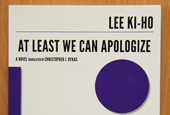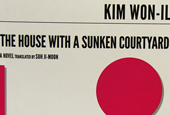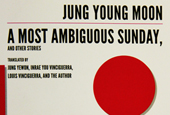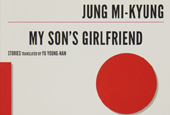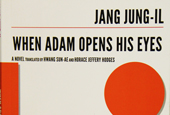-
 Korea.net's 24-hour YouTube channel
Korea.net's 24-hour YouTube channel- NEWS FOCUS
- ABOUT KOREA
- EVENTS
- RESOURCES
- GOVERNMENT
- ABOUT US
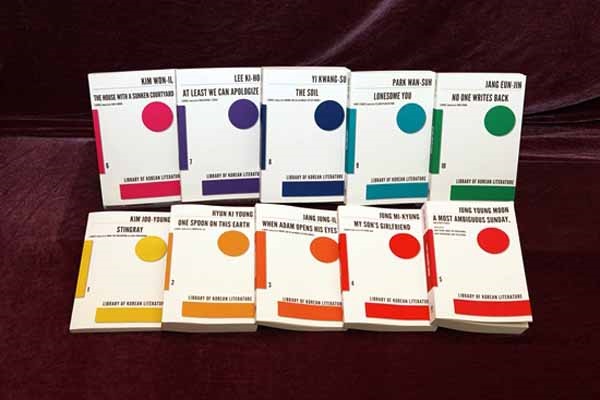
The Library of Korean Literature series is a collection of ten Korean novels published in English in the U.S. last year. (photo courtesy of the Literature Translation Institute of Korea)
The eighth part of the ten-volume Library of Korean Literature series is “The Soil” penned by Yi Kwang-su (1892-1950).
This work, a novel about the enlightenment of farmers, was featured as one of the 75 Notable Translations for 2013 in the December issue of World Literature Today last year, an American monthly magazine covering international literature and culture.
This full-length novel breaks the story down into four chapters, all centered on the protagonist Heo Sung, raised as an orphan, who lives in a house owned by the aristocratic official Mr. Yun. The first chapter presents the progress of Heo Sung as he succeeds in the national bar exam and therefore wins the house-owner’s favor to marry his daughter, Jeong-seon.
In the second chapter, Heo Sung goes back to his hometown, Salyeoul, and begins a rural enlightenment campaign. Chapter three focuses on Heo Sung’s marital relations, at an impasse as his wife falls prey to many temptations and even attempts suicide. However, she chooses to return to her family and starts all over again.
The last chapter depicts the growing animosity among villagers against the landowner and its thawing with time.
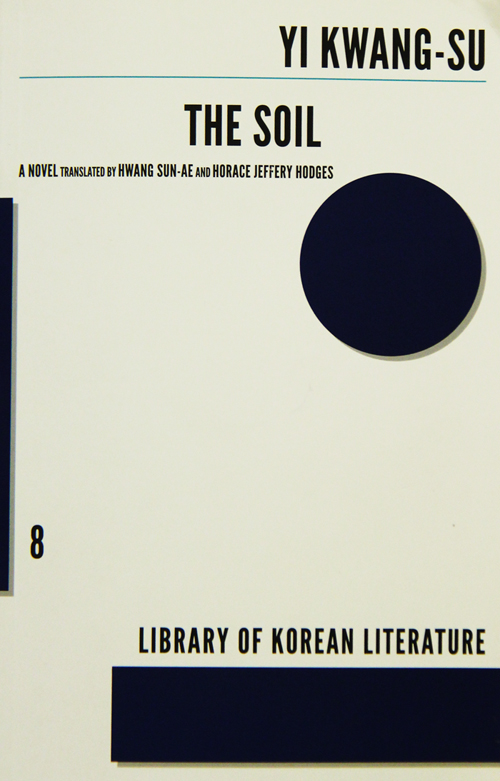
Yi Kwang-su’s novel “The Soil” was published in English last year.
“This [farmland] has been built with our blood and sweat, by cutting down the trees, ripping out their roots and building a reservoir. This field is where I have rice and where all our ancestors, for generations, have lived. Their bones, flesh and blood, all together, stem from, take root in and come into bloom in this soil…”
As seen in the above quote, Heo Sung is the kind of person who thinks his origins are deeply rooted in, and trace back to, the soil and the rural community in which he lives. If he distances himself from the soil tilled by his forefathers, he believes that he will never find his own values.
The author is believed to have put his own philosophy of enlightenment into his protagonist, as found in Heo Sung’s activities dedicated to his rural community, such as building the National Agricultural Cooperative Federation, hosting night schools and launching similar campaigns in poorer neighborhoods.
The author himself has long been credited with launching his own enlightenment movement in many rural regions; he put the enrichment of farmers’ lives above anything else.
To this day, the main reason that this work has been much read lies not just in its intriguing storyline, involving a love affair and a back-to-the-earth movement, but in the transition of a small town into a true rural community through Heo Sung’s lofty spirit and strong ambition.
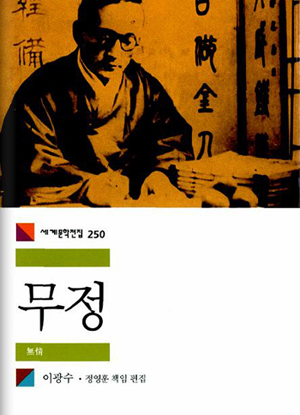
Pictured is Yi Kwang-su on the cover of one of his other novels “Heartless.“ (captured image from Aladin)
He was actively involved in journalism as well, working as the chief editor at the Dong-a Ilbo newspaper and was the vice president at the Chosun Ilbo newspaper. He also brought English-language works to the domestic audience by translating them into Korean himself.
The author made his literary debut with his first Japanese-language novel “Is This Love?” in 1909. His full-length novel “Heartless,” this time written in Korean, enjoyed a huge readership when published in 1917.
He wrote more than 60 novels, including “Pioneer,” “His Autobiography,” “The Young Sacrifice” and “Heartless,” as well as numerous poems and essays.
By Sohn JiAe
Korea.net Staff Writer
jiae5853@korea.kr
Most popular
- China warmly welcomes first Korea-born giant panda Fu Bao
- First hearing-impaired K-pop act hopes for 'barrier-free world'
- Novelist Hwang's 'Mater 2-10' shortlisted for Int'l Booker Prize
- Expats could account for 7% of population in 20 years: report
- Nat'l Fire Agency picks 137 elite staff for deployment abroad









